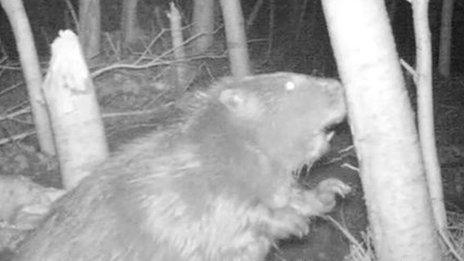'Mystery' beavers permitted to stay
- Published
Steve Hussey, Devon Wildlife Trust, told Sarah Ransome the beavers had lived on the river for many years
Beavers living on the River Otter in Devon will be allowed to remain living in the wild, if free of disease.
Government agency Natural England has decided to award the Devon Wildlife Trust a five-year licence to manage the animals, on a trial basis.
The animals must first be trapped and tested to ensure they are a European species and free from tapeworm.
This is the first time such permission has been given to re-introduce a mammal previously extinct in England.
Other species, such as wild boar, have naturalised after escaping from enclosures.
Beavers were hunted to extinction around 500 years ago for their highly valuable fur and oil.
Positive responses
This breeding family was first spotted on the River Otter in Devon a year ago. It is thought that there are now three young "kits" and at least eight adults.
Derek Gow is working for the re-introduction of the European beaver
The license states that Devon Wildlife Trust (DWT) must develop a strategy "to deal quickly with any undesirable impacts which the beavers may have on the River Otter during the trial period, as well as a monitoring programme to study their impacts", according to Natural England.
Andrew Sells, the agency's chairman, said:
"Reintroduction of a species is a complicated and emotive subject and we have considered this application very carefully.
"Responses to our written consultation and public meetings have been generally positive and we are now satisfied with Devon Wildlife Trust's plans for managing and monitoring the project, which will allow important evidence to be gathered during the trial on any impacts which the beavers may have."
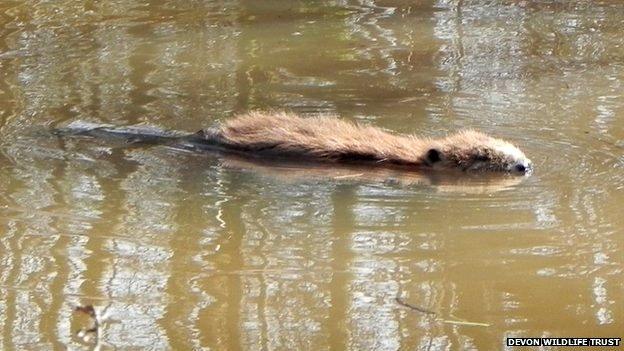
The fenced enclosure run by Devon Wildlife Trust has housed Eurasian beavers since March 2011
Government vets will capture and test the animals, to confirm that they are Eurasian beavers and not infected with the tapeworm Echinococcus multiloculari.
A spokesperson from the Department for Environment, Food and Rural Affairs (Defra) said:
"Our priority is to ensure humane treatment for the beavers while safeguarding human health, that's why we will be working with the DWT to capture and test the animals before the trial begins."
Mysterious arrival
The government initially decided that the animals represented a possible threat, both to health and the countryside, and should be taken in to captivity. This prompted environmental charity Friends of the Earth to launch a legal challenge, and the Devon Wildlife Trust to apply for a licence for them to stay.
The granting of this licence is something of a victory for those who see beavers as beneficial to the environment.
Beavers are known as a "keystone species" because of the dramatic impact they have on their surroundings.
They fell large and small trees, and create sophisticated dams that hold vast amounts of water. They use these lakes as 'superhighways' to get to foraging areas.
Steve Hussey from the Devon Wildlife Trust told the BBC: "We are delighted, but this is where the hard work begins.
"We have to raise enough money to run the five-year monitoring program. This means keeping tabs on these animals, knowing where they are and what impact they have on the local landscape, people, wildlife and economy."
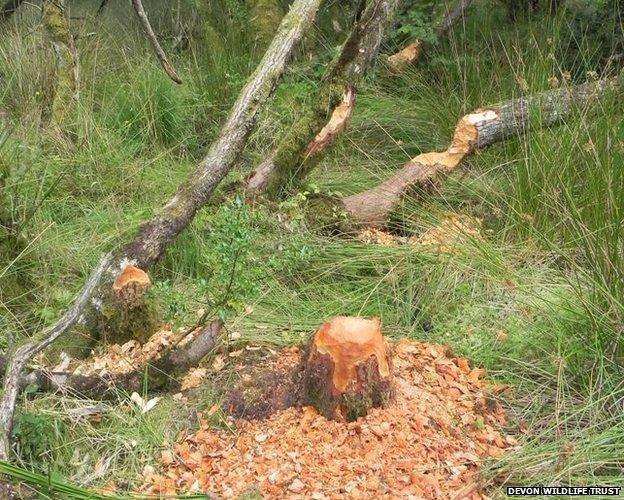
Beavers gnaw trees like this to get to young green shoots at the top
What remains a mystery is how the family of beavers was able to make its home on the River Otter. One theory is that this was the work of "beaver bombers" - wildlife vigilantes who illegally release animals in to the wild.
Derek Gow is an ecologist who runs the DWT's trial sanctuary for beavers, elsewhere in Devon. "These animals on the Otter and the Tay (in Scotland) haven't come from Mars and haven't survived as enclaves from the last ice age," he told the BBC.
"They have been put there by individuals, or allowed to escape. This is because this whole debate has been based on politics - and this activity is people just saying 'enough of talk'. They assemble the animals and let them go."
Uncertain impact
The Angling Trust is fiercely opposed to the re-wilding of these "aquatic engineers" because of what they see as their devastating impact on rivers and migrating fish runs. The trust's Mark Owen told BBC News the decision could have serious consequences:
"When you look at the way that beaver numbers can increase over time, we just cannot predict and think through what impact on our landscape that kind of population will have - and the damage to fish stocks, to infrastructure."
According to the United States Department of Agriculture, growing beaver populations can cause "epidemic" destruction.
The biggest landowner on the River Otter, meanwhile, has a balanced and broadly welcoming view of its new tenants.
Dr Sam Bridgewater, the nature conservation manager for Clinton Estates, said that reintroduction of beavers in other countries had caused controversy but proved largely beneficial to river systems.
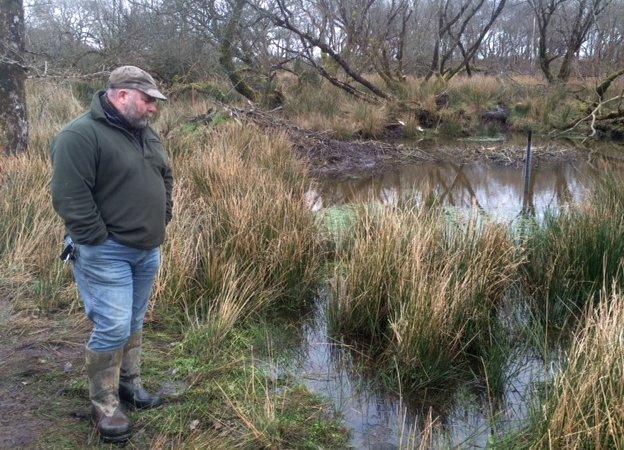
Ecologist Derek Gow, pictured with a beaver lodge, says "beaver bombers" act out of frustration
"If their numbers increase, then it is inevitable that they will eventually start to engineer their local environment," Dr Bridgewater said.
"This will bring all kinds of benefits such as a potential slowing down of flood waters and an increase in the diversity of wildlife habitats, but will also likely cause some grief.
"I think a key issue for the authorities to address is that mechanisms are put in place to allow any conflicts to be avoided quickly in the future."
Friends of the Earth called the announcement "a victory for common sense" and suggested it could be just the beginning.
"Hopefully we'll now see renewed efforts to reintroduce beavers to other suitable locations right across the country," said campaigner Alasdair Cameron.
In Scotland, the government is monitoring the wild population of some 150 animals on the River Tay, and has also been running its own trial reintroduction programme in Knapdale. A decision on their future will be made later this year.
- Published14 November 2014
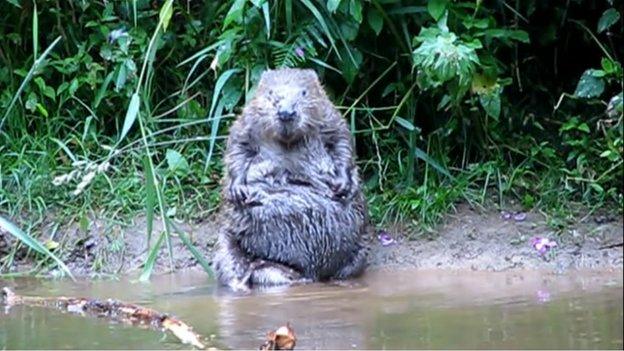
- Published24 October 2014
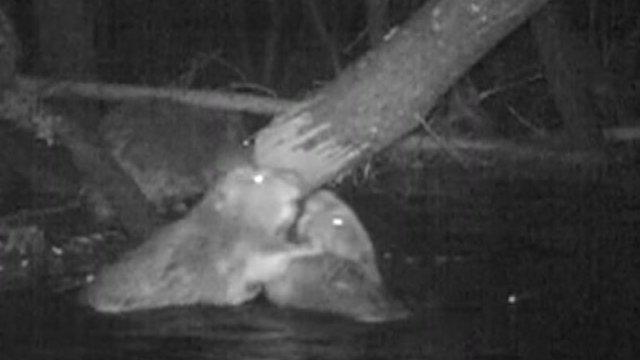
- Published11 July 2014

- Published1 July 2014

- Published27 February 2014
